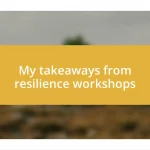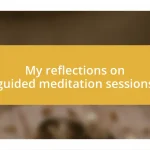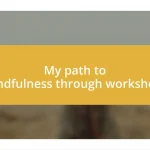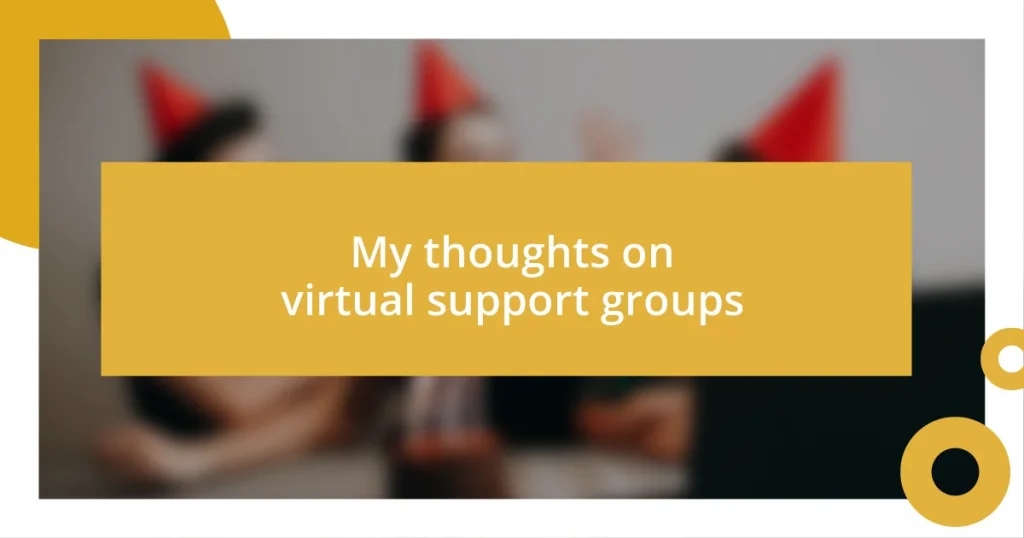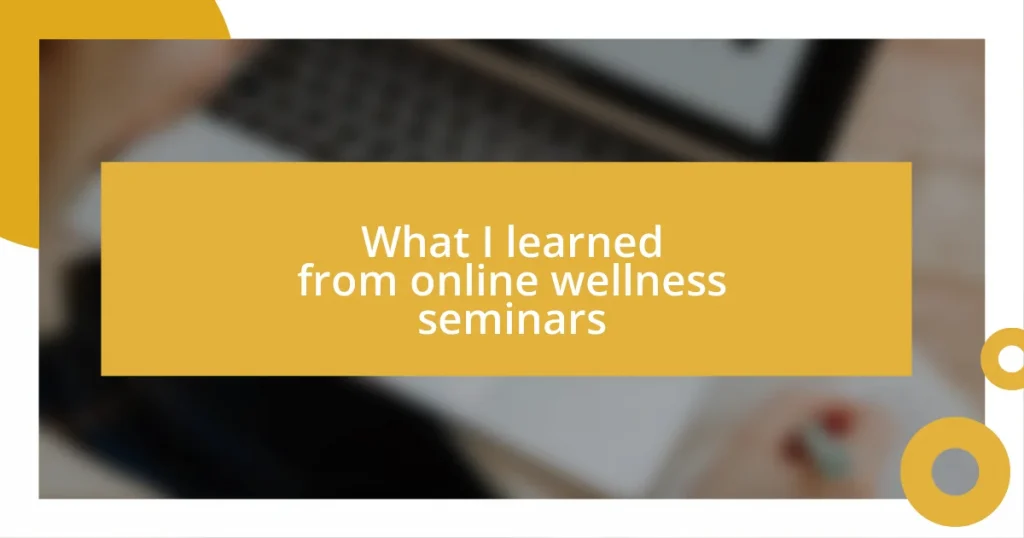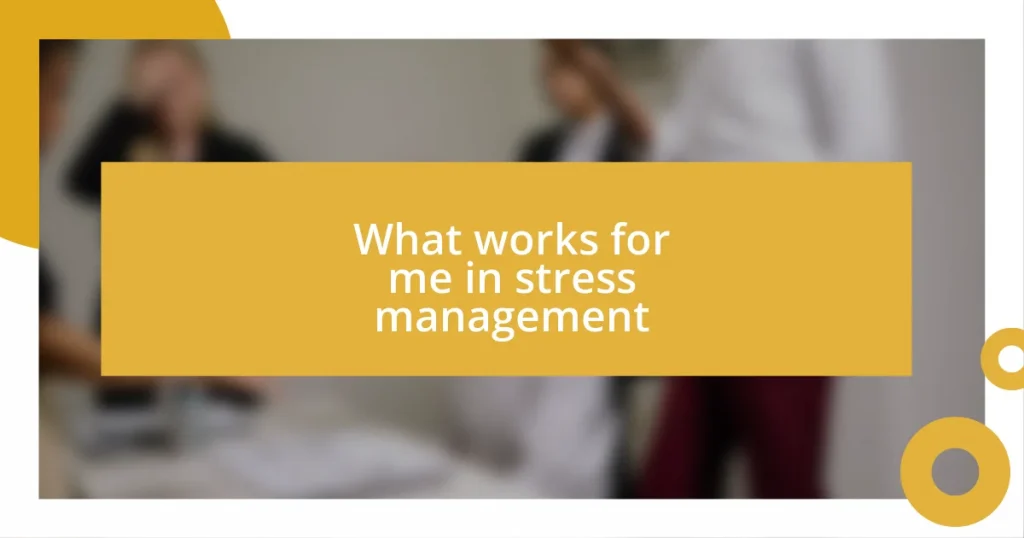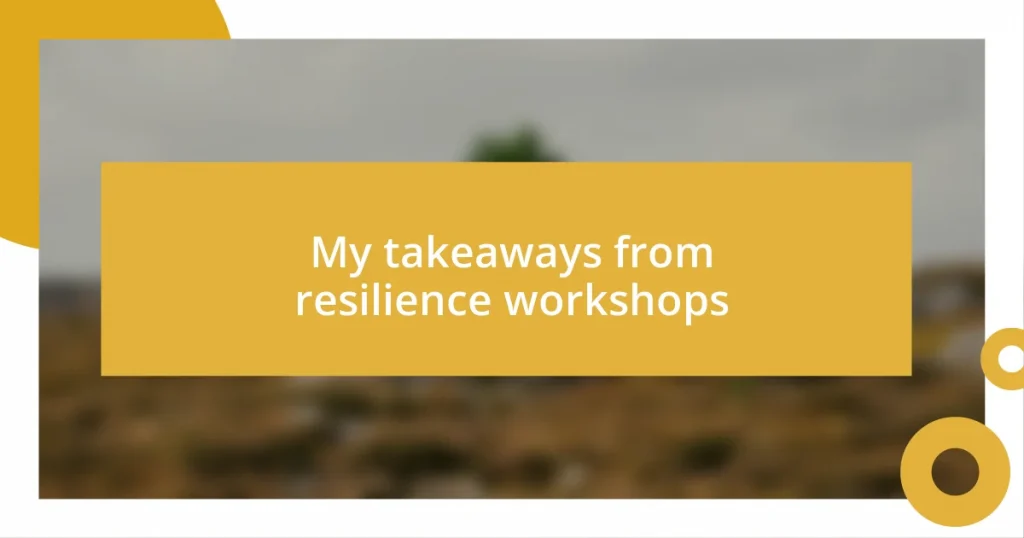Key takeaways:
- Virtual support groups can provide a sense of community and understanding, especially during isolating times.
- Trust-building in online environments is crucial, and practices like consistent participation and active listening enhance group dynamics.
- Resources like Meetup, Reddit, and social media offer accessible ways to find virtual support groups tailored to personal experiences and needs.
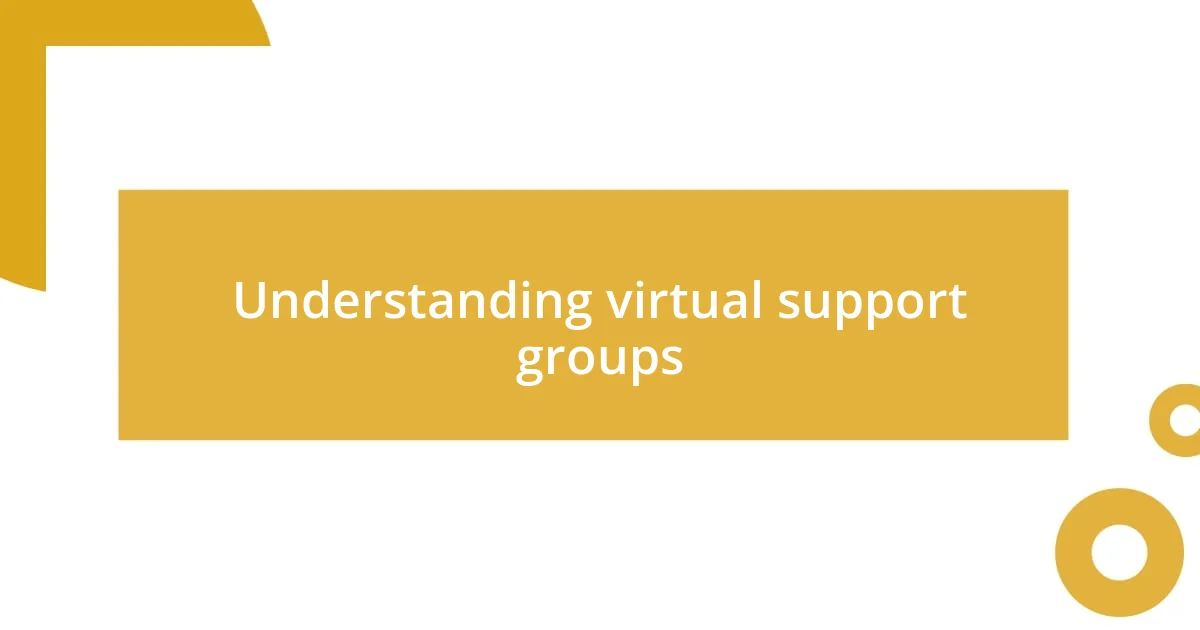
Understanding virtual support groups
Virtual support groups have become a lifeline for many, especially during times of isolation. I remember my first experience joining one; I logged in feeling hesitant but left with a sense of community I hadn’t expected. Isn’t it fascinating how technology can bridge distances and connect us in such profound ways?
These groups offer a unique space where individuals can share their struggles and triumphs openly. I’ve witnessed firsthand the power of sharing—hearing someone voice their challenges can be a powerful reminder that we’re not alone in our experiences. How often do we feel our battles are ours alone, only to find that others face similar journeys?
What truly intrigues me is the dynamic of virtual interactions compared to face-to-face meetings. While there’s a certain magic to in-person connections, I’ve noticed that the anonymity and comfort of being at home can lead to more honest sharing. Have you ever felt more comfortable expressing yourself when you’re in a familiar space? I certainly have, and it’s liberating.
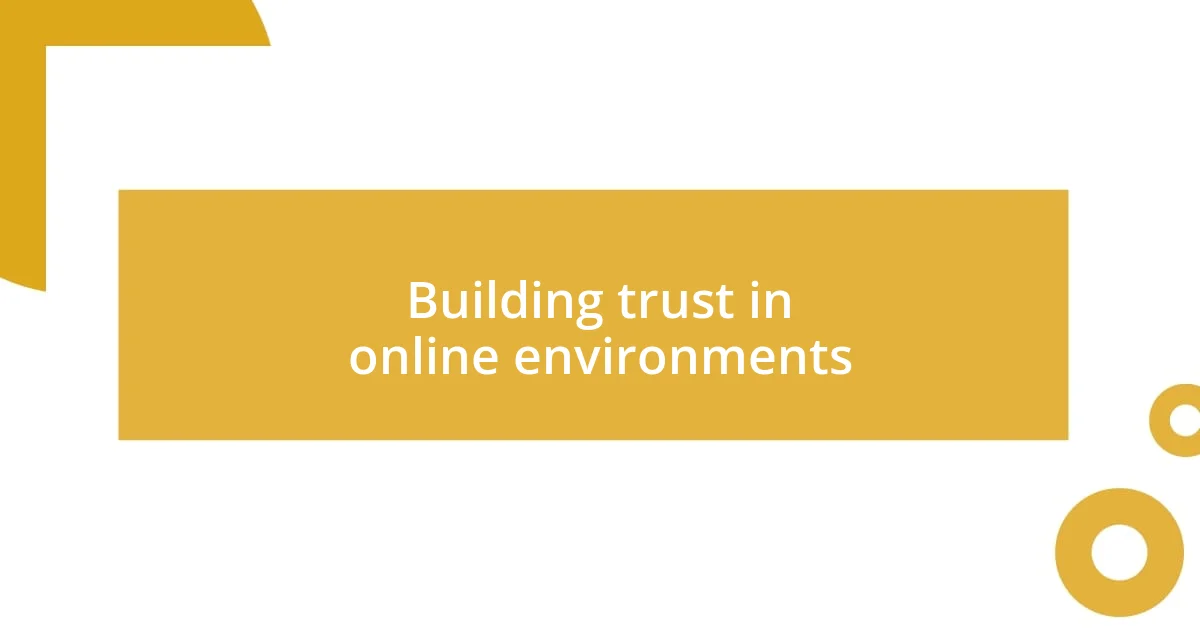
Building trust in online environments
Building trust in online environments is essential for the effectiveness of virtual support groups. I’ve experienced how establishing trust can be a gradual process. When I joined my first online group, it took several sessions before I began to feel comfortable enough to share my thoughts and vulnerabilities. It struck me how vital it is for members to create an atmosphere where everyone feels safe and respected.
To foster this trust, here are some key practices that I’ve found helpful:
- Consistent Participation: Showing up regularly helps create familiarity among members.
- Active Listening: Engaging fully with what others share reinforces the value of their stories.
- Setting Ground Rules: Clear guidelines for confidentiality create a safe space.
- Sharing Personal Experiences: When I revealed my own challenges, others felt more inclined to do the same.
- Offering Encouragement: Simple affirmations can significantly uplift someone who’s hesitant to speak.
Building trust is a two-way street, and witnessing this dynamic in action truly inspires me. There’s something powerful about seeing a community bond and knit itself together, fostering genuine connections one conversation at a time.
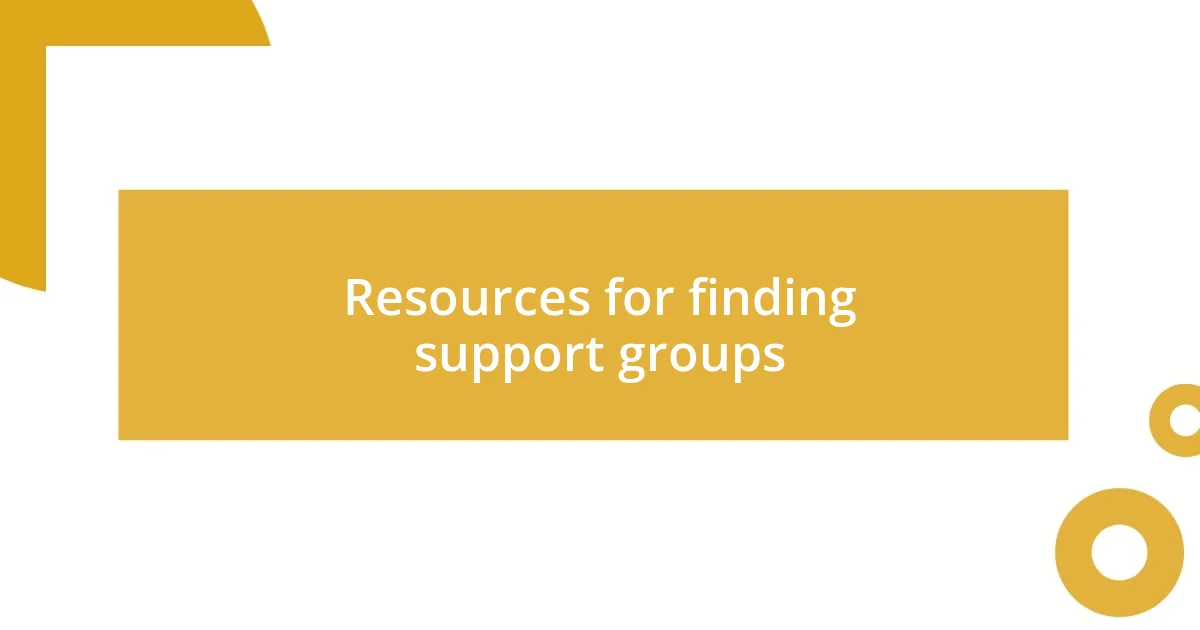
Resources for finding support groups
When it comes to finding virtual support groups, the internet is your best friend. Websites like Meetup and Reddit have dedicated spaces where people can connect over shared experiences and interests. I vividly remember stumbling upon a group for anxiety support; it felt like finding a hidden gem online. Have you ever experienced that rush of excitement when you realize there’s a community out there that truly gets you?
Social media has also become a powerful resource for connecting with support groups. Facebook, for instance, hosts countless private groups focused on specific topics ranging from mental health to chronic illnesses. Joining one of these groups made me feel immediate relief; suddenly, I was surrounded by others navigating similar challenges. It’s incredible how just a few clicks can lead to understanding and empathy, don’t you think?
Local organizations and mental health professionals often provide lists of virtual support options as well. I’ve often found that reaching out to a therapist can reveal communities tailored to your needs. It’s like having a personal guide in search of a way to find your tribe. Those connections not only provide practical help but also deepen the sense of belonging we all crave. Why not take that first step and explore what’s waiting for you out there?


